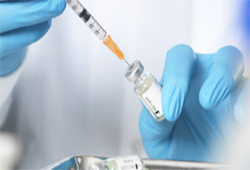
Over the past two weeks, there have been a number of announced clinical studies and updates from biosimilar developers around the world.
On November 9, Shanghai based Henlius Biotech, Inc. announced the start of its Phase I clinical trial of HLX14, the company’s biosimilar to Prolia® (denosumab). According to the announcement, the Phase I trial will consist of two parts. Part 1 will consist of comparing the pharmacokinetics, pharmacodynamics, safety, tolerability, and immunogenicity of HLX14 to EU-sourced denosumab. Part 2 of the trial is aimed at establishing pharmacokinetic bioequivalence of HLX14 and US-, EU-, and CN-sourced denosumab.
Also on November 9, Formycon AG and Bioeq GmbH announced the start of its Phase III clinical trial of FYB202, their biosimilar candidate to Stelara® (ustekinumab). According to the announcement, the Phase III trial is aimed at demonstrating the comparability of FYB202 to the reference product Stelara® in terms of efficacy, safety, and immunogenicity in patients with moderate to severe psoriasis vulgaris.
On November 11, Samsung Bioepis Co., Ltd. announced one-year results from their Phase III study on SB11, the company’s proposed biosimilar to Lucentis® (ranibizumab), in patients with neovascular age-related macular degeneration. According to Hee Kyung Kim, Senior Vice President and Clinical Sciences Division and Regulatory Affairs Team Leader at Samsung Bioepis, “The 52-week data confirms SB11 has equivalence in efficacy and pharmacokinetics (PK) as well as a comparable safety and immunogenicity profile with the reference product.”
